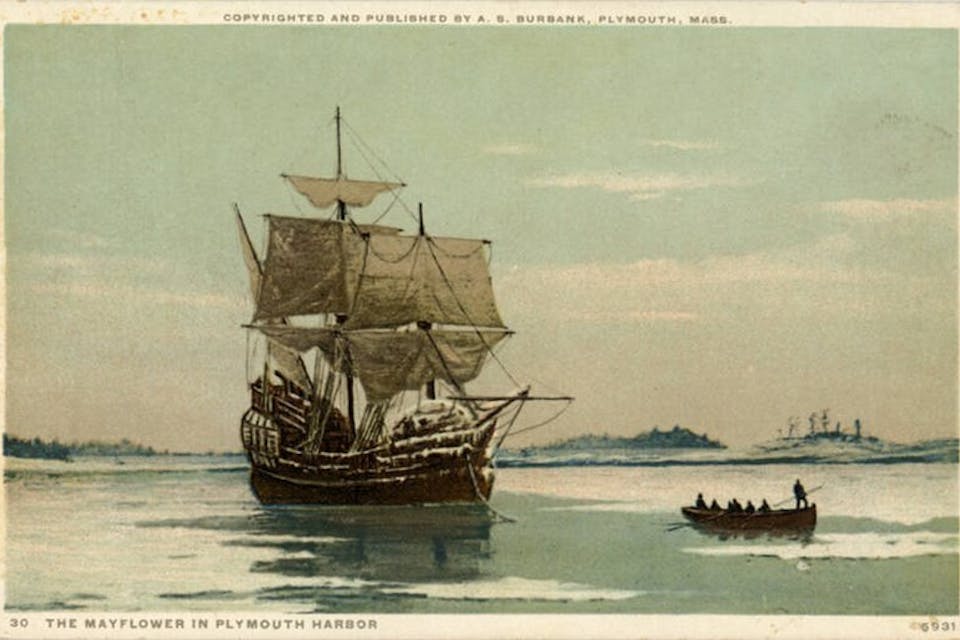
September 1, 2020
The 1620 Project
By Rabbi Meir SoloveichikWhy Jews have a special obligation to defend the American founding.
Four hundred years ago this month, the Mayflower set sail for the New World. On board was William Bradford, who would serve for decades as governor of Plymouth Colony and whose memoir is still the central source of knowledge about the colonists’ triumphs and travails. His grave is in Plymouth as well, an obelisk marking the spot and bearing his name. But above the engraved English words three words appear, etched in Hebrew: Adonai ezer hayai, the Lord is the help of my life. To most tourists, the Hebrew words are gibberish, but to Jews who come upon them, they are a source of fascination—and a reminder, 400 years after the Mayflower set sail, of the remarkable tale of America itself.
The origin of the intriguing epitaph can be found in Nick Bunker’s fascinating book on the Pilgrims, Making Haste from Babylon.There he reveals Bradford’s fascination with Hebrew, and how, at the end of his life, he began to study what he saw as a sacred script. “I have had a longing desire,” Bradford reflected, “to see with my owne eyes, something of that most ancient language, and holy tongue … and what names were given to things, from the Creation.” With paper scarce, Bradford “copied out his exercises on blank pages at the front of the manuscript of his history of the plantation. He covered the white space with nearly 900 Hebrew words, starting with eight names for God.” Bradford’s Pilgrims, like the Puritans who would follow him, “wished to swim back up the stream of learning, and to absorb the wisdom of the Bible from as close to the source as possible.” They sought out Christian exegetes with interests similar to theirs, who “read with sympathy the rabbis of the Roman Empire, Egypt, and medieval Spain, authors whose books were preserved by the Jews of Germany or Venice.”
Bunker further reveals that Bradford’s engagement with Jewish tradition began on the Mayflower itself. One book he carried with him was a commentary on the Psalms by the Hebraist Henry Ainsworth. While Ainsworth was interested in the vastness of rabbinic tradition, he was in love with Maimonides, whom he called “the wisest of the Hebrew Rabbins.” Ainsworth cites Maimonides in explaining how Psalm 107 serves as the source for Jews to express gratitude to God after successfully crossing a wilderness or a treacherous body of water. Bradford’s brethren could certainly identify with this teaching, and his memoir, which references the words of this Psalm, recounts that upon arriving safely at Cape Cod, the Pilgrims expressed their own gratitude to the Almighty. The feast that we annually commemorate today would not come until 1621, but, as Bunker reflects: “If we could ask William Bradford to define the first Thanksgiving in America, he would point to something else. He would say that it took place at the instant of arrival, at the moment on Cape Cod when the Pilgrims fell on their knees to say the Jewish prayer.”